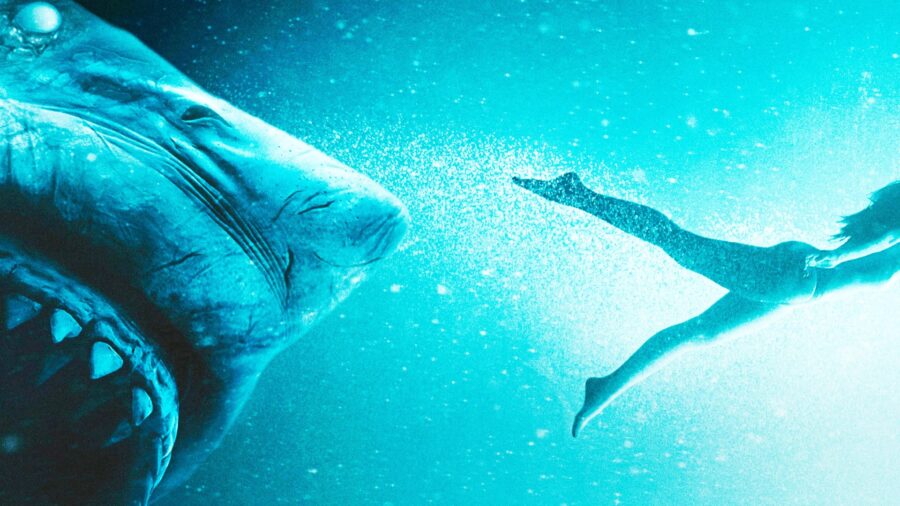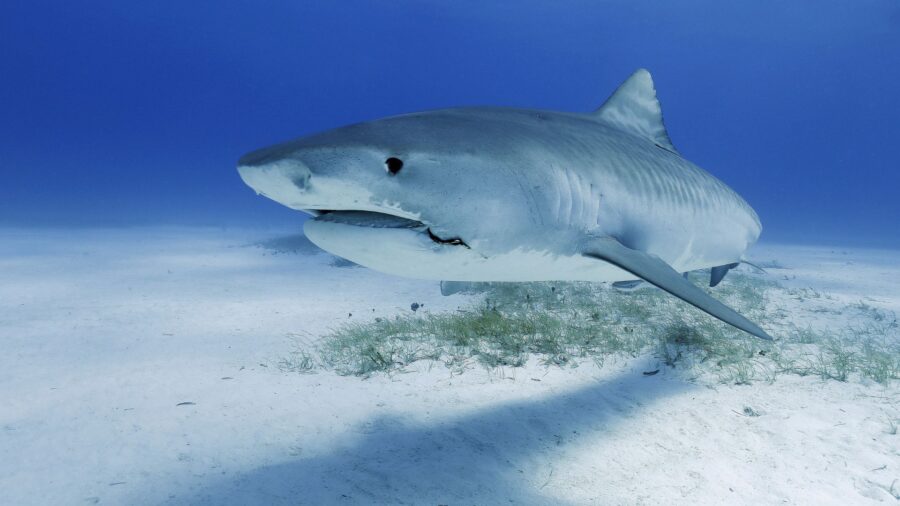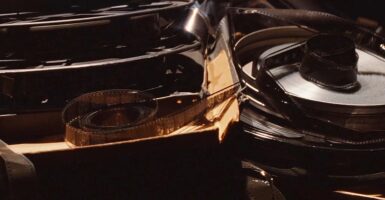There Are Now Cocaine Sharks In Florida

Thanks to the internet’s outsized reaction to Cocaine Bear, audiences were “treated” to the awful aquatic movie Cocaine Shark earlier this year. Previously, those who watched that movie could rest assured that in reality, there are no sharks swimming around that are hopped up on cocaine. Well, rest no longer: LiveScience reports that this year’s Shark Week program Cocaine Sharks is exploring “whether sharks off the coast of Florida are coming into contact with the huge quantities of cocaine.”
While the idea of real-life cocaine sharks may sound crazy, the premise makes more sense than you might think. Cocaine and other drugs are often dropped into Florida’s coastal waters as drug runners attempt to avoid getting busted by the United States Coast Guard or other state and federal authorities. If there are plenty of drugs in the water and plenty of sharks in the water, it only makes sense that sharks might have come into contact with those drugs.
Sharks in Florida may have come into contact with cocaine dumped into the ocean.
In order to determine whether Florida’s coastal waters really do have cocaine sharks, Tom “The Blowfish” Hird teamed up with Tracy Fanara, a University of Florida environmental scientist. They devised a series of experiments designed to determine two related things: whether large amounts of cocaine really have been ingested by sharks and, if so, what effect the drug has had on their bodies and minds.
The team first created bales that resembled the real thing, and they were surprised to see the sharks head right for the fake cocaine bales rather than the fake swans they had set up.
Of course, Florida has plenty of coastal waters, so they had to figure out where to start. Taking the stories of local fishermen into account, this small team set out to investigate the water around the Florida Keys for signs of sharks that were behaving in abnormal ways.
Locals tell stories of sharks consuming drugs, and while it was impossible to tell if they were “cocaine sharks” or not, the team did discover things like a sandbar shark swimming in tight circles around something that apparently only he could see.
To determine if they are used to consuming cocaine, the team first created bales that resembled the real thing, and they were surprised to see the sharks head right for the fake cocaine bales rather than the fake swans they had set up.

Next, they fed bait balls of fish powder to the sharks in order to give them a dopamine rush, which is (both legally and ethically) the closest they could come to feeding the sharks actual cocaine.
As planned, the fish powder sent the sharks into a frenzy of wild behavior, and the researchers concluded that if the sharks were getting into cocaine, it would cause similar behavior. Finally, they dropped fake bales of cocaine from a plane to see what the sharks would do, and the sharks immediately made a move on the fake drugs.
The team hopes their experiments help to raise awareness about the dangers of dropping drugs and various pharmaceuticals in the ocean.
It looked for all the world like going after the cocaine is something they had done many, many times before (maybe next year, Leonardo DiCaprio can host The Shark of Wall Street for Discovery).
Ultimately, though, the team behind Cocaine Sharks admitted that they couldn’t conclusively prove that these sea creatures were consuming the drugs. It’s entirely possible something else could explain the odd behavior they observed, just as it’s entirely possible the sharks had other reasons to aggressively go after the fake cocaine bales.
Still, the team hopes their experiments help to raise awareness about the dangers of dropping drugs and various pharmaceuticals in the ocean, and you can watch everything step of their experiments by watching Cocaine Sharks on the Discovery Channel at 10 pm ET Wednesday, July 26.












